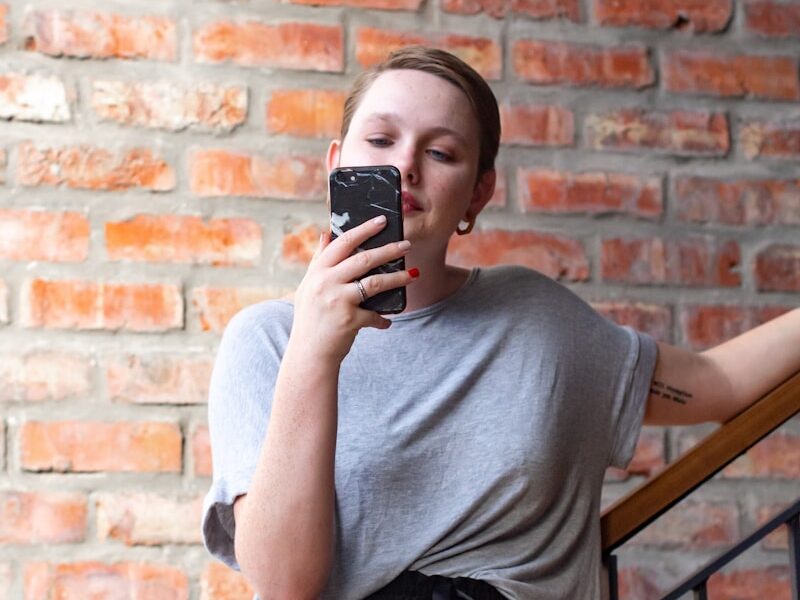
Friendship should bring comfort, honesty, and support. But not everyone who calls themselves your friend actually treats you as one. Some people wear the mask of friendship while hiding envy, convenience, or self-interest underneath. They laugh with you, they tag along, but their actions show something different: a lack of genuine care. Spotting the patterns early helps protect your peace. Here are 15 signs someone pretends to be a friend but really isn’t.
They Celebrate Your Failures More Than Your Successes

A real friend glows with pride when you succeed. A fake one looks more animated when you stumble. They laugh harder at your mistakes than they ever cheer at your achievements. Sometimes they’ll say things like, “See? You’re not perfect after all,” disguised as a joke. But if they seem more energized by your downfalls than your wins, it’s because failure makes them feel comfortable — it reassures them they’re not falling behind.
They Disappear When You Need Support

It’s easy to show up when times are fun. The real test of friendship is when things fall apart. Fake friends vanish in these moments. They might dodge your calls, send a quick excuse, or tell you, “I’m just so busy,” while somehow making time for others. Their pattern is clear: they’re around for the laughs, not the lows. True friendship doesn’t mean someone has all the answers, but it does mean they’ll stand beside you when life hurts.
They Only Reach Out When They Need Something

Notice the rhythm of their messages. Do they rarely text unless they’re asking for a ride, a loan, or a favor? Pretend-friends often treat relationships as vending machines — they put in just enough friendliness to get what they want. You’ll hear from them when their car breaks down or when they need someone to vent to at midnight, but not just to say, “How are you?” A true friend values your presence, not your utility.
They Undermine You With “Jokes”

Humor should feel lighthearted, not heavy. But with fake friends, jokes have a bite. They make fun of your insecurities, mock your efforts, or turn your achievements into punchlines. If you object, they retreat with, “Relax, I was just kidding.” That phrase is a shield to avoid accountability. With time, these jokes chip away at your confidence.
They Gossip About You Behind Your Back

When someone pretends to be a friend but isn’t, they often double-play roles. To your face, they’re warm. Behind your back, they spread your secrets, twist your stories, or share details meant to stay private. You might hear something you told them repeated by others, or notice a shift in how people treat you after confiding in them. That’s because they’ve turned your trust into currency to gain social points elsewhere.
They’re Competitive, Not Supportive

Healthy friendships thrive on celebrating each other’s wins. But a fake friend treats every achievement as a scoreboard. If you get a promotion, they quickly highlight their own raise. If you buy a new home, they make a point of showing theirs off. Sometimes they even downplay your success with comments like, “It’s not that big of a deal.” This competitiveness reveals they don’t see you as a teammate in life, but as a rival.
They Keep Score

A major red flag is when friendship feels transactional. “Remember when I did this for you? You owe me.” Real friends don’t keep tally marks — they give freely because they want to. Fake ones make generosity into leverage, ensuring you feel indebted. Even small acts of kindness become bargaining chips in their game.
They Don’t Respect Your Boundaries

Boundaries are healthy — they show respect for both yourself and the relationship. But fake friends often push past them. If you say you’re busy, they guilt you into changing plans. If you ask for privacy, they pry harder. Their disregard shows they see your boundaries as inconveniences, not necessities. Real friends hear “no” and respect it. Fake ones hear “no” as a challenge to get what they want anyway.
They’re Two-Faced Around Others

A pretend friend’s loyalty shifts with the audience. Alone with you, they might laugh and connect. But in a group, they distance themselves or even join in criticism to stay aligned with the crowd. Their loyalty is conditional: they’ll be your friend when it costs them nothing, but the moment it risks their reputation or status, they flip.
They Don’t Make Effort Unless It Benefits Them

Friendship is a two-way street. If you’re always initiating plans, while they show up only when convenient for them, it’s not balanced. Fake friends often contribute just enough to keep the connection alive, but not enough to prove they genuinely care. Their effort spikes when there’s something in it for them — a free meal, an introduction, or access to your network.
They Subtly Put You Down

Pretend friends have a way of packaging criticism as honesty: “I’m just telling it like it is.” But the “truths” they share often make you doubt yourself rather than improve. They might comment on your looks, your career, or your choices in ways that sting more than they help. Over time, these subtle digs add up, creating self-doubt. Real friends point out flaws to help you grow; fake ones highlight them to keep you small.
They’re Envious of Your Happiness

When good news comes, you can feel the lack of genuine joy in their response. Their “congratulations” feels flat, followed by a quick subject change. Or they might insert negativity: “That’s great, but are you sure it’ll last?” Envy makes it impossible for them to celebrate you wholeheartedly. Instead of sharing your happiness, they dampen it. A true friend doubles your joy. A fake one quietly resents it.
They Don’t Listen to You

Conversations with a fake friend feel one-sided. They vent, they overshare, they dominate — but when it’s your turn, they zone out or steer the talk back to themselves. Your milestones, struggles, or thoughts don’t land with them because they’re not invested in truly knowing you. Real listening shows care. Pretend friends only see you as a sounding board for their own lives.
They Drain Your Energy

Friendships should feel restorative, even when life is messy. But fake ones leave you exhausted. Maybe it’s the constant criticism, the negativity, or the imbalance of always giving and never receiving. You leave interactions feeling depleted instead of nourished. Over time, this drains not just your mood, but your self-worth. A true friend gives you energy. A fake one siphons it off, often without even realizing the weight they leave behind.
You Feel It in Your Gut

Even when you can’t articulate it, your instincts whisper: Something’s off. The smiles don’t feel sincere, the conversations feel shallow, the relationship feels conditional. Pretend friends can fake many things, but they can’t fake the comfort and safety real friendship brings. If your gut keeps telling you the bond is hollow, trust it. Intuition is often your clearest compass.

